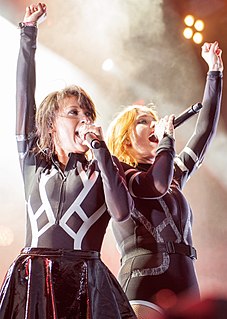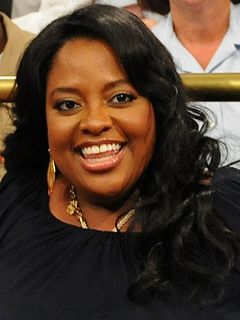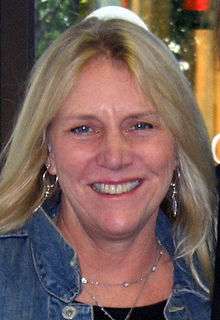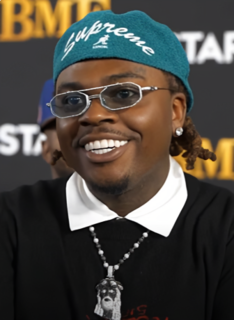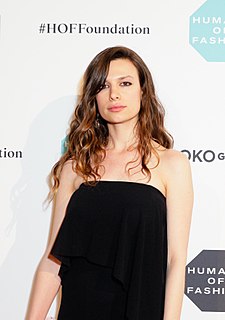A Quote by Lucy Dacus
Hopefully when you listen to a song, you can say, 'That's me,' or 'That's someone I know' - you relate to it in a way that's cathartic.
Related Quotes
People say bad things about me. I've had people tell me, "You know, Rush, I've been telling people to listen to you and listen to you, and I finally get 'em to do it, and then you say something so offensive, and they look me, 'You listen to this?' And I'm tired of defending you, Rush. Why do you say stupid things?" I know what this is like.
When I realized I could write lyrics and let someone that I knew listen to them, but not know that the song was about them - say it was a girl. I could write this song about how I feel about this girl, I could play it to them. I just loved it, because all of the words would speak to them. I could see them slowly falling in love with me.
You want to have a song that people will listen to and go, 'Oh, yeah! That reminds me of something in my life,' or, 'something I'm currently going through,' or maybe something happens later and you hear the song and go, 'Wow! That really was telling a story that I can relate to now.' That's my hope.
I got my own sound in Atlanta because I don't listen to anybody's music. When you listen to people's music, you start to say stuff they say as an artist because that's what you've been listening to. Me, I don't listen to anybody. I support, but I don't listen, because I don't want to run with someone style. I do my own thing.
Often for me, if I hear a song I know, it clicks for me and I hear it in a different way and I think, "I could sing that song. I've got something to say about that song. Wanting to connect with an audience and wanting them to rethink songs; it is actually important to do songs they're familiar with. Also, I love those songs. In a way, I think I've changed people's perceptions of what a cabaret show like this could be.
What I've learned - after working for, I guess, some time now - is when you're approaching a relationship like that, like, any working relationship, it's good to be open. To know that someone might have a different way of doing things and listen to them. And hopefully, you come to a common understanding.




